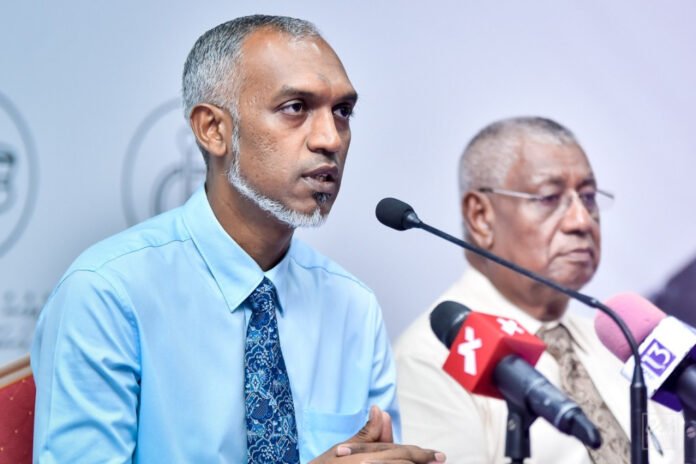In the idyllic archipelago of the Maldives, political tensions have surged once again as the main opposition party accuses President Ibrahim Mohamed Solih, commonly known as President Muizzu, of shielding criminals. The allegations, which have sent shockwaves through the island nation, cast a shadow over the government’s efforts to combat crime and uphold the rule of law. As the accusations reverberate across the political landscape, they raise questions about governance, accountability, and the future trajectory of the Maldives.
The allegations leveled against President Muizzu by the main opposition party, the Progressive Party of Maldives (PPM), stem from a series of high-profile criminal cases and incidents of violence that have rocked the country in recent months. The opposition alleges that the president’s administration has turned a blind eye to rampant criminality, allowing perpetrators to evade justice and operate with impunity. Moreover, the opposition accuses the government of politicizing law enforcement agencies and using them to target political opponents while protecting allies accused of criminal activities.
One of the most prominent cases fueling the opposition’s allegations involves the brutal assault of a journalist, Ahmed Rilwan, who disappeared in 2014 and was later confirmed dead. Despite international pressure and calls for justice, the perpetrators of the crime remained at large for years, prompting widespread outrage and condemnation. The opposition alleges that President Muizzu’s administration failed to prioritize the investigation into Rilwan’s disappearance and pursue justice for the victim and his family, further eroding public trust in the government’s commitment to upholding the rule of law.
Additionally, the opposition points to a string of violent incidents, including gang-related clashes and murders, as evidence of the government’s failure to address rising crime rates effectively. The Maldives, known for its pristine beaches and luxury resorts, has grappled with a surge in violent crime in recent years, posing significant challenges to the country’s reputation and stability. The opposition alleges that President Muizzu’s administration has been unable or unwilling to address the root causes of crime, including poverty, unemployment, and social inequality, exacerbating the problem and endangering the safety and security of Maldivian citizens.
The accusations leveled against President Muizzu come at a critical juncture for the Maldives, which has been navigating political turbulence and democratic transitions in recent years. Following the ousting of former President Abdulla Yameen in 2018, the Maldives witnessed a resurgence of democratic ideals and aspirations, culminating in the election of President Ibrahim Mohamed Solih. However, the allegations of criminal protection and governance failures threaten to undermine the progress made towards consolidating democracy and strengthening institutions in the Maldives.
In response to the opposition’s accusations, President Muizzu’s administration has vehemently denied any wrongdoing, asserting its commitment to combating crime and ensuring the safety and security of all citizens. The government has pointed to various initiatives aimed at addressing crime and improving law enforcement capabilities, including enhanced police training, increased surveillance measures, and community outreach programs. Moreover, the administration has emphasized its commitment to upholding the rule of law and respecting human rights, dismissing the opposition’s allegations as politically motivated and baseless.
However, despite the government’s reassurances, the opposition’s allegations have struck a chord with many Maldivians, who express growing frustration and disillusionment with the state of governance and accountability in the country. As calls for transparency, justice, and accountability grow louder, President Muizzu’s administration faces mounting pressure to address the underlying concerns driving the opposition’s accusations and restore public confidence in the government’s ability to govern effectively.
In addition, the main opposition party’s accusations against President Muizzu of shielding criminals have plunged the Maldives into a political crisis, raising serious questions about governance, accountability, and the rule of law. The allegations, fueled by a string of high-profile criminal cases and incidents of violence, have exposed deep-seated concerns about rising crime rates and the government’s ability to address them effectively. As the Maldives grapples with these challenges, the government faces increasing pressure to respond to the allegations and restore public trust in its commitment to upholding justice and ensuring the safety and security of all citizens.

